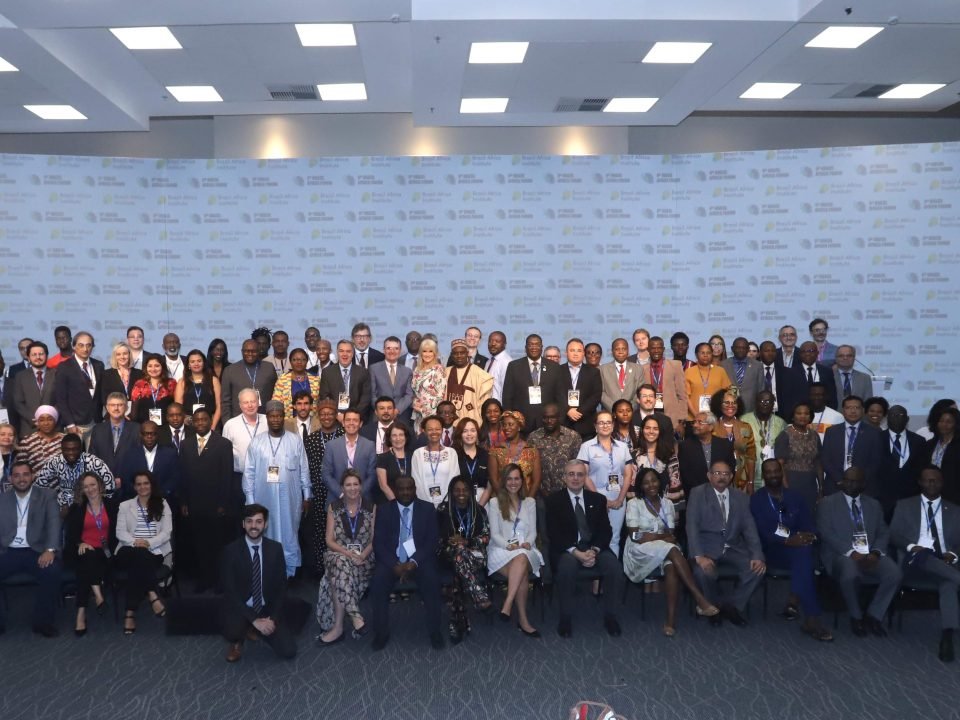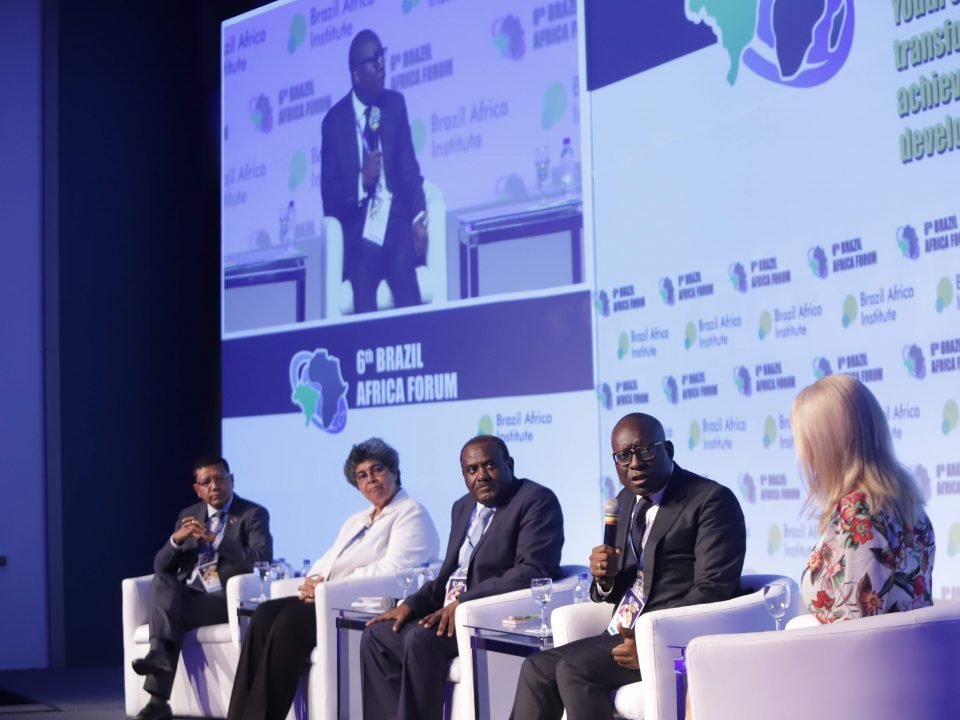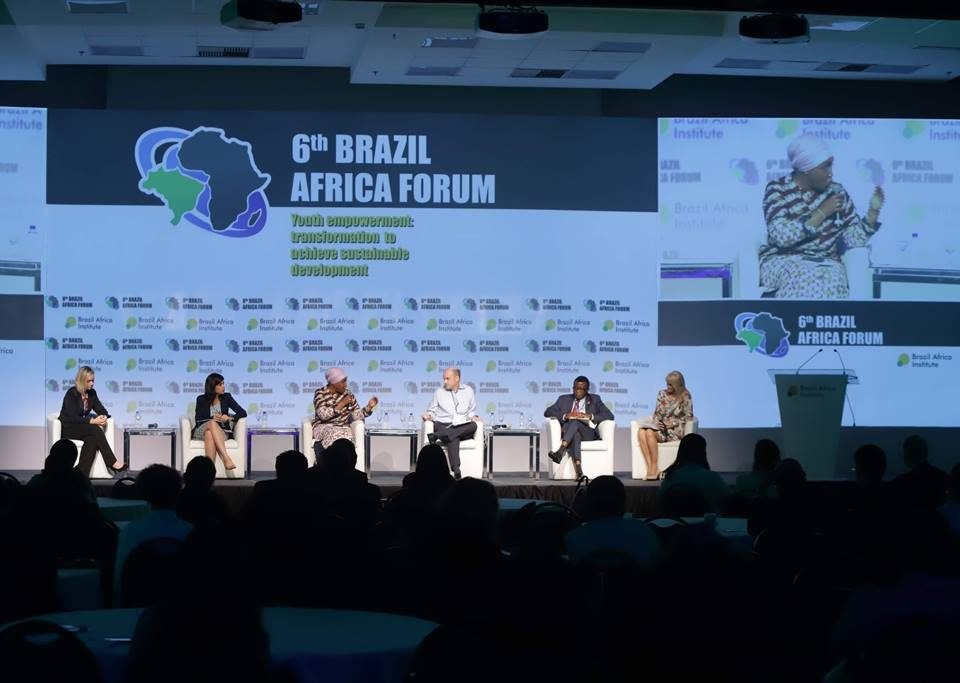6th Brazil Africa Forum discusses transformative actions to ensure local development

The inclusive creative economy highlighted by the 6th Forum Brazil Africa
22 de novembro de 2018
IBRAF and Fiocruz announce a partnership and launch course for young Africans in 2019
22 de novembro de 2018Moderated by João Rosário, journalist from RTP Africa, the beginning of the afternoon of this Thursday, November 22, 2018, was marked by the plenary of transformative actions to ensure local community building and development. The panel was attended by Ashif Juma, CEO of AG-Dangote; Nthabiseng Legoete, founder of Quali Health; Zinhle Mncube, Industrialization Manager of Knowledge Pele; Emmanuel Azhigri, CEO of the Youth National Authority and; Fábya dos Reis Santos, Secretary for the Promotion of Racial Equality in the State of Bahia.
Nthabiseng Legoete, the founder of Quali Health, highlighted the important advances in the health of the population of South African communities where they provide quality assistance, resulting in the strengthening of the local economy. “People deserve more effective care. I understand that when they can access health care, they can be more productive. If they do not have this access, they will not be able to contribute to the economy. Therefore, when you make someone productive again, they will be able to contribute and help develop the community, which will positively affect their country´s development”.
Regarding birth control, Nthabiseng Legoete pointed out that it is necessary to work on education, to improve the quality of services and to make them easily accessible by the people. Quali Health promotes birth control by empowering women, allowing them to gain autonomy and self-responsibility.
Contributing to the birth control debate, Ashif Juma, CEO of infrastructure and construction company AG Dangote, added to the debate addressing the issue of population growth in the continent of Africa. She pointed out that there was a lack of infrastructure and investments to support the growing African population. For Juma, the role of creating good and sufficient infrastructure is a responsibility of the African states. She enforced that Africa should invest in the media and the education of women, creating opportunities for women to strive in their lives and be able to drive their lives freely. “I am convinced that woman is much more assertive and devoted to her country than man. Based on this assessment, if Africa follows this basic orientation, its development will be more accelerated”.
Bringing the discussion to the reality of Sub-Saharan Africa, Zinhle Mncube, Industrialization Manager of Knowledge Pele, considered electricity as a vital tool for the development of African communities. For him, without electricity, it is not possible to produce or even offer health to the population, given that of electric prevents economic advances and basic supply of basic health care. Mncube assured that the challenge is to invest in the social sector that can contribute by creating an economically sustainable community.
CEO of the Youth National Authority, Emmanuel Azhigri, spoke about the importance of the market and agriculture in Brazil, mainly as an example of a sector to empower the youth for the youth. For the manager, it is imperative to offer the right tools so that young people can develop in their work areas.
At the end of the session, the Secretary for the Promotion of Racial Equality in the State of Bahia, Fábya dos Reis Santos, spoke about the State Government program for the black population and the traditional peoples of the Bahian territories. She said that “The state of Bahia has 750 certified quilombos and, from that, we have a presence of indigenous populations of different ethnicities, besides the traditional populations, shellfish, fishermen, among others. We are the only state secretary with this status across the country, this is a challenge in the field of joints and management “. According to her, Bahia is the only state in Brazil that has signed and ratified International Decade of Afro-Descendant Peoples by the UN. This treaty promotes the full enjoyment of economic, social, cultural, civil and political rights of Afro-descendant citizens.
More photos:







